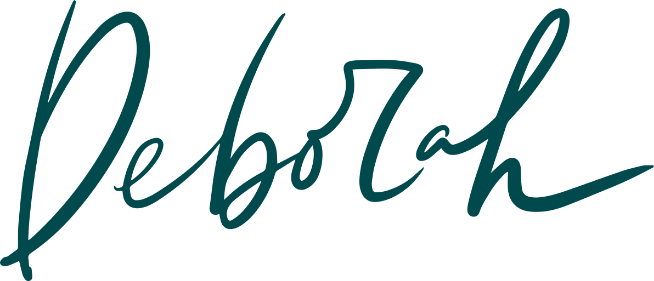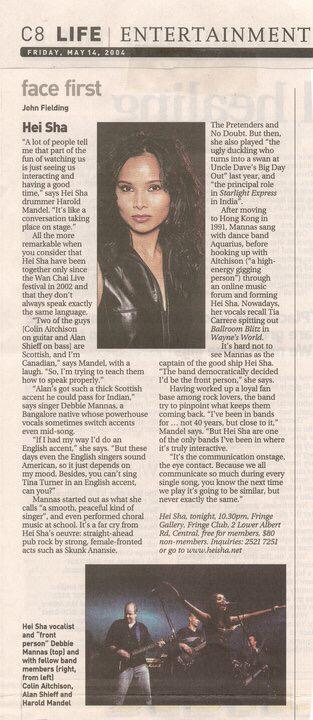Face First
JON FIELDING
Hei Sha
“A lot of people tell me that part of the fun watching us is just seeing us and interacting and having a good time,” says Hei Sha drummer Harold Mandel. “It’s like a conversation taking place on stage.”
All the more remarkable when you consider that Hei Sha have been together only since Wan Chai Live festival in 2002 and that they don’t always speak exactly the same language.
“Two of the guys (Colin Aitchison on guitar and Alan Shieff on bass) are Scottish, and I’m Canadian,” says Mandel, with a laugh. “So, I’m trying to teach them how to speak properly.”
“Alan’s got such a thick Scottish accent he could pass for Indian,” says singer Debbie Mannas, a Bangalore native whose powerhouse vocals sometimes switch accents even mid-song.
“If I had my way I’d do an English accent,” she says. “But these days even the English singers sound American, so it just depends on my mood. Besides, you can’t sing Tina Turner in an English accent, can you?”
Mannas started out as what she calls “a smooth, peaceful kind of singer”, and even performed choral music at school. It’s a far cry from Hei Sha’s oeuvre: straight ahead pub rock by strong, female-fronted acts such as Skunk Anansie, The Pretenders and No Doubt. But then, she also played “the ugly duckling who turns into a swan at Uncle Dave’s Big Day Out” last year, and “the principal role in Starlight Express in India.
““It’s the communication onstage , the eye contact. Because we all communicate so much during every single song, you know the next time we play it’s going to be similar, but never exactly the same.””
After moving to Hong Kong in 1991, Mannas sang with dance band Aquarius, before hooking up with Aitchison (“a high-energy gigging person”) through an online music forum and forming Hei Sha. Nowadays, her vocals recall Tia Carrere spitting out Ballroom Blite in Wayne’s World.
It’s hard not to see Mannas as the captain of the good ship Hei Sha. “The band democratically decided I’d be the front person,” she says.
Having worked up a loyal fan base among rock lovers, the band try to pinpoint what keeps them coming back. “I’ve been in bands for…not 40 years, but close to it,” Mandel says. “But Hei Sha are one of the only bands I’ve been in where it’s truly interactive.
“It’s the communication onstage , the eye contact. Because we all communicate so much during every single song, you know the next time we play it’s going to be similar, but never exactly the same.”

